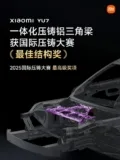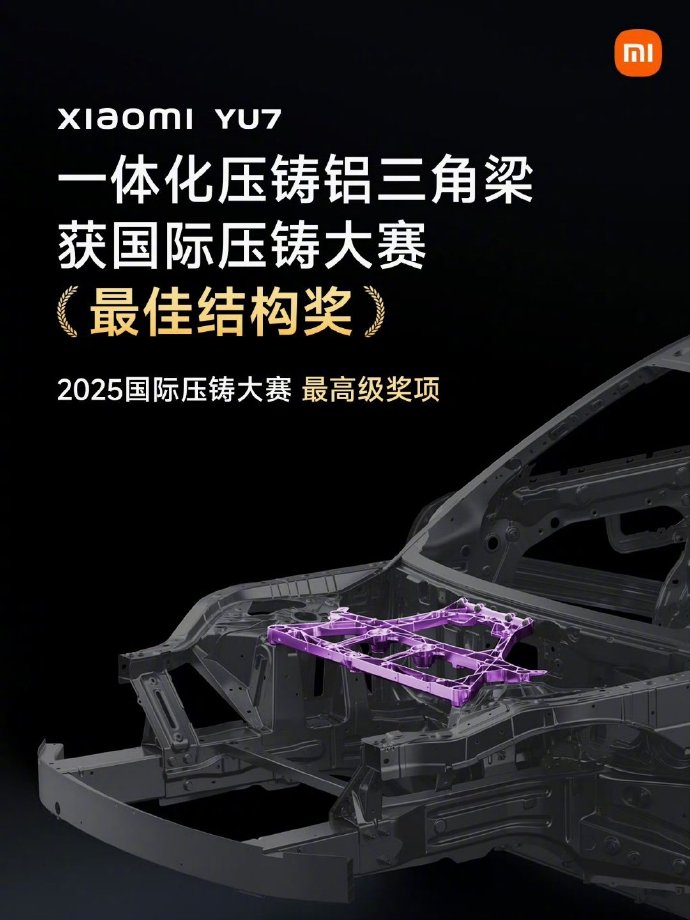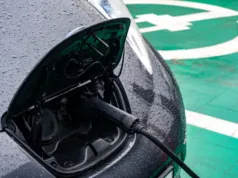Xiaomi’s YU7 electric SUV has been recognized for its engineering innovation after winning the “Best Structure” award at the 2025 International Die Casting Competition, the event’s top honour. The recognition highlights the YU7’s 20-in-1 integrated die-cast aluminium triangular beam, a complex component that combines crash-force management, thermal system integration, and space efficiency in a single structure, as shared by Xiaomi CEO Jun Lei on Weibo.
The front beam serves as the primary crash-force transfer path, helping to distribute impact forces during collisions and protecting the occupant compartment. Additionally, it supports the mounting of thermal management components, including the air conditioning module, compressor, refrigerant, and cooling systems. The integration of these elements enables a more compact front-engine bay and allows for a 141‑litre front-storage compartment (“frunk”).
Combined with the CTB (cell-to-body) battery architecture, where the battery pack, floor, and body form a unified structure, the YU7 achieves torsional rigidity of 47,610 N·m/deg. Xiaomi cites this as a class-leading figure, reflecting the vehicle’s structural stiffness and handling stability.
The award was presented by the North American Die Casting Association (NADCA), a trade organization representing the die-casting industry throughout the U.S., Canada, and Mexico. Founded in 1989, NADCA provides technical standards, education, and industry advocacy while hosting the International Die Casting Competition. The competition evaluates components on material innovation, structural performance, integration efficiency, and manufacturing quality. Recognition from NADCA indicates that an element has met rigorous technical and peer-reviewed standards in die-casting.
The YU7’s recognition also occurs amid Xiaomi’s growing automotive production. In October 2025, retail sales of Xiaomi’s new-energy vehicles in China reached 48,654 units, with wholesale volumes of the YU7 exceeding 33,662 units, surpassing sales of the Tesla Model Y in China.
Other automotive manufacturers also employ significant die-cast structural components, but Xiaomi’s 20-in-1 integrated beam distinguishes itself by combining multiple subsystems into a single cast module. The company has not disclosed manufacturing costs or yield metrics, but emphasizes ongoing investment in structural engineering and safety features for the YU7 and future models.
Follow us for ev updates











